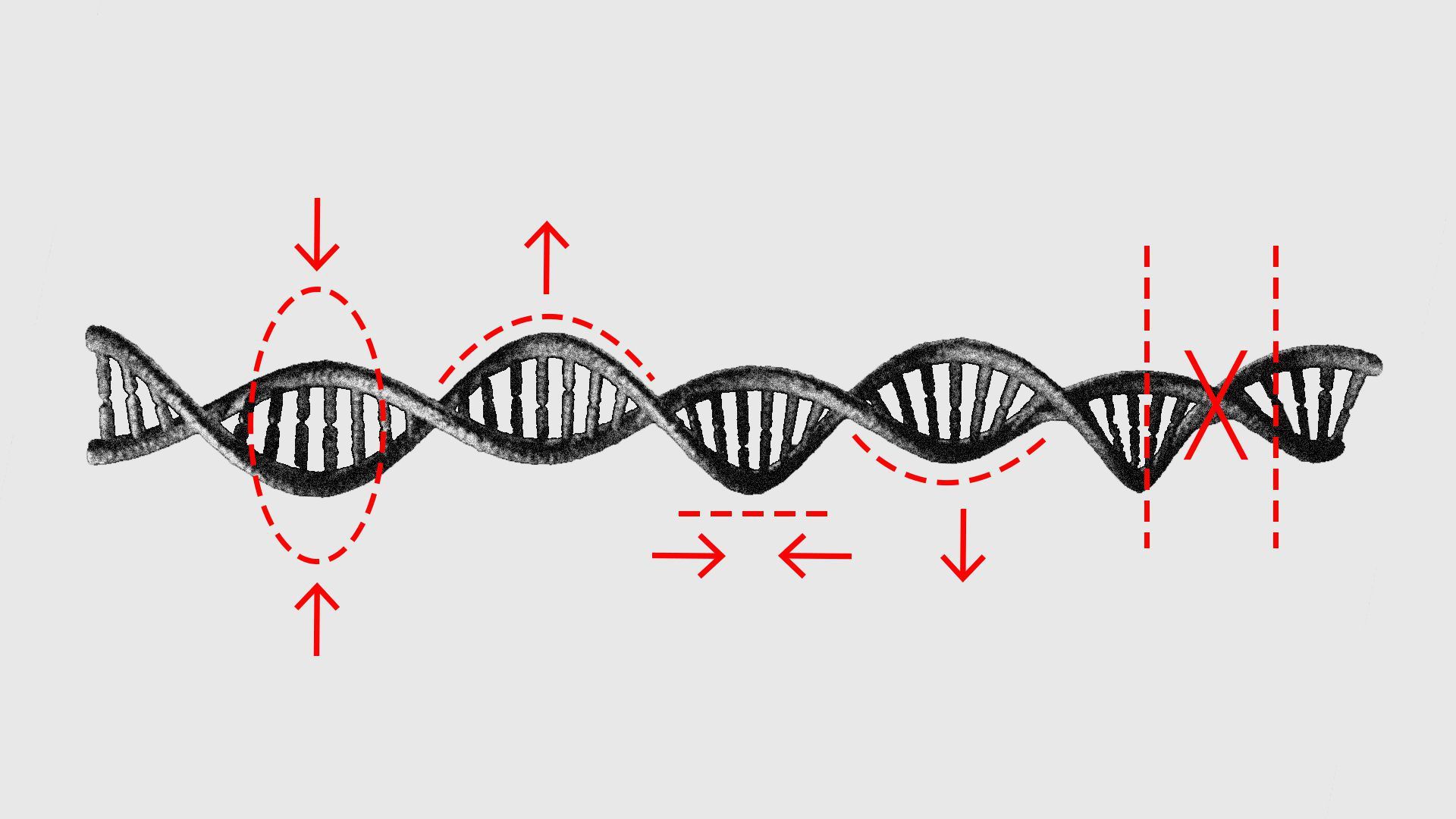Expert group warns editing genes for heritable conditions is not yet safe
Add Axios as your preferred source to
see more of our stories on Google.

Illustration: Rebecca Zisser/Axios
Gene editing to correct genetic diseases isn't ready to be safely used in human eggs, sperm and embryos for pregnancies, according to a new report that lays out detailed criteria for determining when and how the technology could ultimately be used.
Why it matters: Scientists, ethicists and others have called for international rules — ranging from guidelines to regulations to moratoriums — for the editing of human genes that can be passed down to future generations.
Key takeaways: Human embryos that are used in a pregnancy shouldn't be edited before the technology can "efficiently and reliably make precise genomic changes without undesired changes," according to the report, written by 18 experts from 10 countries, including the U.S., China, the U.K. and India. (Off-target edits are a continued challenge for the field.)
- Another technological advance is needed: the ability to reliably sequence the entire genome in a single cell to check for off-target effects, commission member Haoyi Wang of the Chinese Academy of Sciences said during a press conference today.
- "Extensive societal dialogue" about the social and ethical issues of embryo genome editing should occur before a country decides whether to permit it.
- If the technology is one day deemed safe, effective and permissible, the group says its use should first be restricted to serious diseases that arise from mutations in a single gene — for example, sickle cell anemia and thalassemia — and then only when parents don't have other options for having a biologically related child who doesn't inherit the disorder.
Ultimately, countries will likely regulate the technology's use, and the report calls for national and international mechanisms for overseeing the use of human genome editing in clinical settings and for whistleblowers to report misconduct.
- It also recommends forming an international panel of scientific advisers to review and make recommendations about proposed new applications of "heritable human genome editing."
What they're saying: Some researchers told Jon Cohen of Science the commission's criteria for editing human embryos are too narrow, while others said the guidelines reflect the limited medical justifications for using the technology.
Background: The International Commission on the Clinical Use of Human Germline Genome Editing was set up by the UK's Royal Society, the U.S. National Academy of Sciences and the U.S. National Academy of Medicine after a researcher in China claimed twin girls were born from embryos he changed with the gene-editing tool CRISPR in an attempt to make them immune to HIV infection.
- The announcement nearly two years ago sparked condemnation and calls for a moratorium on editing embryos. The researcher, He Jiankui, was jailed for three years.
What to watch: The World Health Organization is drawing up its guidelines for governing genome editing technology more broadly. The report released today is intended to inform those guidelines, which will also consider ethical and social challenges.
